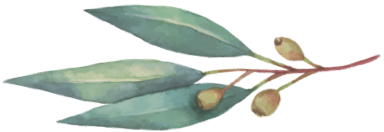

It goes without saying that we love our honey bees! They make sweet, sweet Aussie honey. They are the precious livestock to our Aussie beekeepers. And they play an important role in pollination that affects the foods we eat each day.
Here you will discover just how important bees and beekeepers are to our environment and food supply. We have even created an ebook that you can download here to learn more about one of the world’s most important insects.

One in three mouthfuls of food that we eat has been made thanks to pollinators like the buzzy bee1. When you think about it, that is quite a lot of food!
Without bees, some of our favourite fruits, seeds, nuts and vegetables would not make it from the farm to our plates.
We would also risk losing some of our meat and dairy products because we often feed farm animals with fodder such as lucerne that is made thanks to pollination.
Below we have visualised what each of our meal times could look like if we did not have the precious bee anymore. See for yourself just how important bees are to the foods we love so much!
One of the most important processes in our natural environment, pollination is the reason many of our trees, flowers and other plant species can exist and thrive today. It is also how our birds, bees and many other insects get their food every day.
Pollination is the process of moving pollen from the anthers of one flower to the stigma of another flower (not necessarily of the same type). So when a forager bee gathers nectar, her body becomes dusted with pollen as she moves from flower to flower and cross-pollination takes place!
Bees are expert pollinators because of their furry bodies and small size that enables them to pollinate flowers of many different shapes and sizes.
This process helps flowers reproduce and make seeds that grow into new plants and fruits, which go on to become the delicious foods we nourish ourselves with.
Did you know one in three mouthfuls of food that we eat has been made thanks to pollinators like the humble honey bee1?
From the avocado on our smash avo toast, to the strawberries in our bowl of cereal or nuts in our granola, honey bees are vital for the pollination and production of many of our favourite foods.
Honey bees also contribute to the meat we eat with some livestock feed crops dependent on pollination.
In Australia, 65% of our horticultural and agricultural crops require honey bees for pollination1.
The following Australian crops are 70-100% dependent on honey bee pollination. Look how important honey bees are for producing one kilogram of each crop, to producing enough to feed all us hungry Aussies!
Beekeeping is a very important industry with many Aussie beekeeping families relying on the honey-producing and pollinating powers of honey bees for their income.
Without them caring for the honey bees every day, we wouldn’t have honey to enjoy on crumpets, toast or cereal.
Our beekeepers forage the greatest range of locations – right across Australia – searching to find untouched land where the air is cleanest, the nectar is purest, and their bees can thrive.
It is the dedicated beekeeping families who hand the rich traditions of Aussie beekeeping down through the generations. They are botanists, meteorologists, food scientists, biologists and most of all, guardians – protecting the bees that are so important to all of us.
Without Aussie beekeepers, there would be less bees and therefore less honey for all of us to enjoy.
It is the millions of families in Australia and around the world who choose to nourish both their loved ones and the future of Australian beekeeping, by choosing Capilano honey.
By choosing Capilano Honey, you are not only supporting the Aussie beekeepers who brought you that honey, but you are also supporting the hard-working honey bees that created it in the first place.
One of the easiest ways we can help support our hard-working, littlest livestock is by planting more bee-friendly plants in our gardens!
Bees of all types love gardens that are full of colourful flowers rich in nectar and pollen. Here are some helpful tips to help get you started creating your very own beautiful, bee-friendly garden.